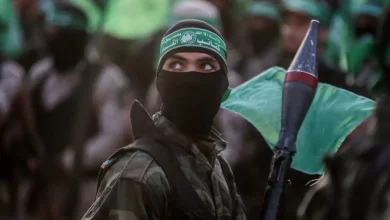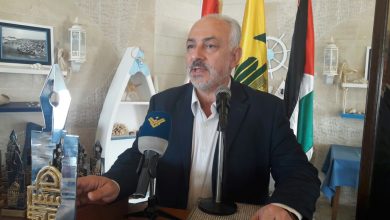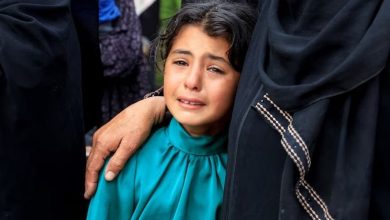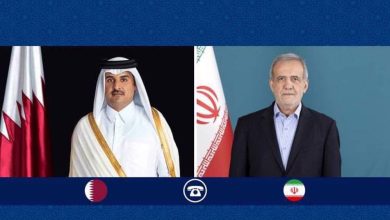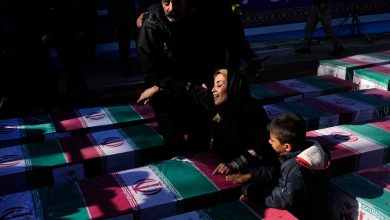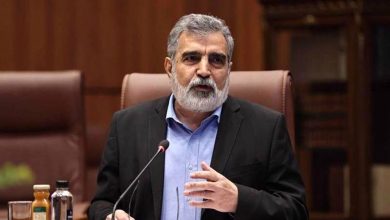Hamas labels the zionist regime’s halt of humanitarian assistance to Gaza as a ‘war crime’
The zionist government has halted the delivery of humanitarian aid to the Gaza Strip following the conclusion of the initial stage of the January 19 ceasefire agreement. The Palestinian resistance group, Hamas, has condemned this action, describing it as a "war crime" against the blockaded enclave.
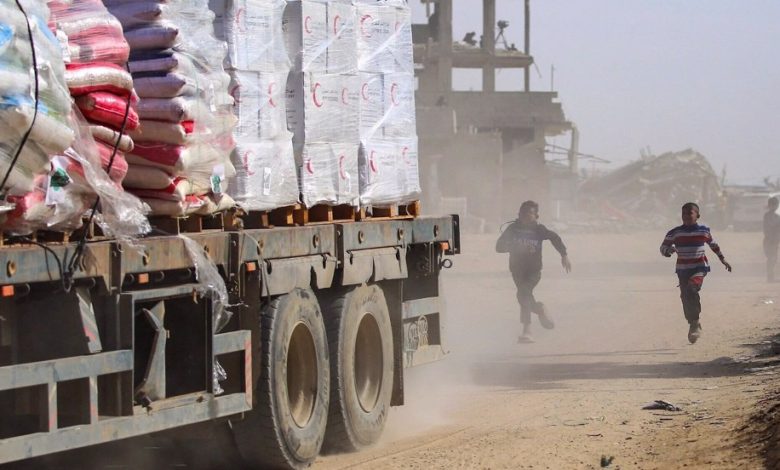
The Israeli government has halted the delivery of humanitarian aid to the Gaza Strip following the conclusion of the initial phase of the January 19 ceasefire agreement. The decision has been met with strong condemnation from the Palestinian group Hamas, which has labeled the action as a “war crime” against the blockaded region.
Live footage from Palestinian media captured the typically busy road in Rafah, a city in the southern Gaza Strip, appearing deserted on Sunday. This development followed an announcement by Israeli Prime Minister Benjamin Netanyahu’s office, declaring a suspension of all goods and supplies into the besieged enclave. The road is commonly used by trucks delivering aid, and its emptiness underscores the impact of the blockade.
The office reported that the decision was made following Hamas’s rejection of an American proposal, which sought to prolong the first phase of the ceasefire to cover the Ramadan and Passover holidays. The proposal also included plans for additional releases of Israeli captives in exchange for Palestinian abductees.
The completion of Phase 1 of the exchange agreement has prompted a new response from Israel following resistance from Hamas to the US special envoy, Steve Witkoff’s, proposed framework for further negotiations—an outline that had received Israel’s approval. As a result, Israel’s Prime Minister Benjamin Netanyahu announced this morning that all shipments of goods and supplies to the Gaza Strip will be halted, according to an official statement from his office.
Prime Minister Benjamin Netanyahu’s office has declared that Israel will not agree to a ceasefire until its captives are released. The statement also cautioned Hamas of “further consequences” should it persist in its current stance.
Senior Hamas official Sami Abu Zuhri has stated that Israel’s restrictions on aid deliveries to Gaza could adversely affect the ongoing ceasefire discussions. Abu Zuhri emphasized that the resistance group remains steadfast and will not yield to external pressures.
According to Israel’s public broadcaster Kan, Prime Minister Benjamin Netanyahu has expressed a lack of interest in negotiating the subsequent phase of the ceasefire agreement. Instead, he intends to increase pressure on Hamas by resuming military actions against the Palestinian territory currently under blockade.
The broadcaster reported that he is deliberating whether to temporarily resume military operations in Gaza to exert pressure on Hamas. Alternatively, he is contemplating upholding the ceasefire without proceeding with further prisoner exchanges. This latter approach would afford mediators additional time to negotiate further concessions from Hamas, despite contravening the terms of the overarching ceasefire agreement.
Finance Minister Bezalel Smotrich has called for swift and decisive action, urging for the unleashing of severe measures immediately.
Israeli Finance Minister Bezalel Smotrich has endorsed Prime Minister Benjamin Netanyahu’s decision to halt humanitarian aid to the Gaza Strip and to continue military operations in the region.
In a significant policy move, Bezalel Smotrich announced that the complete suspension of humanitarian aid to Gaza will persist until Hamas is either eradicated or capitulates, and all hostages are released. Describing the decision as a critical and necessary measure, Smotrich remarked that it placed the situation at a pivotal juncture, referring to the current circumstances as akin to “standing at the gates of hell.”
“We must swiftly and forcefully open these gates without delay.”
According to a statement from Prime Minister Benjamin Netanyahu’s office, authorities have shut down the Kerem Abu Salem crossing, compelling the withdrawal of all aid trucks from the area.
Palestinian media outlets have reported that Israeli forces have fired upon residential areas in the Shujaiyya neighborhood of Gaza City as well as homes located east of Abasan in southern Gaza. In related developments, the militant group Hamas has stated that any progress on hostage swap agreements with Israel will be contingent upon the advancement of the second phase of ceasefire discussions in the Gaza region.
On Sunday, Hamas called for the activation of the second phase of the ceasefire agreement in the blockaded Gaza Strip, following Israel’s independent decision to temporarily extend the initial phase of the truce.
The Palestinian resistance movement announced that any additional exchanges of captives with Israel would require progress in the second phase of ceasefire negotiations concerning Gaza.
“Perpetuation of Conflict in Gaza Raises Humanitarian Concerns”
The Gaza Government Media Office has condemned Israel’s recent decision to halt the entry of critical aid supplies into Gaza, describing it as a perpetuation of what they characterize as a genocidal campaign against the Palestinian population.
In a recent statement, the office criticized the occupation’s decision to suspend aid deliveries to the Gaza Strip, interpreting it as a failure to meet its responsibilities under the existing ceasefire agreement. The statement described this move as further evidence of the occupation’s unwillingness to adhere to its commitments and as part of ongoing actions deemed oppressive against the population. It highlighted concerns that withholding essential resources such as food, water, and medicine could be seen as leveraging vulnerable civilians to exert pressure, amounting to severe humanitarian repercussions.
The statement further emphasized that the occupation has once again shown a disregard for international law, blatantly violating the provisions set forth by the International Charter of Human Rights.
Halting the delivery of aid essentially constitutes a starvation strategy against Gaza’s residents, who are wholly dependent on humanitarian support for survival. This dependency arises from the complete breakdown of employment and production sectors, attributed to the severe impacts of the occupation’s actions.
The office urged mediators, in their capacity as guarantors, to exert pressure on the occupying forces to adhere to their commitments outlined in the agreement. This includes implementing the humanitarian protocol and facilitating the entry of shelter materials, relief supplies, and rescue equipment and machinery into Gaza through all phases of the agreement.
“We call for a cohesive response from Arab and Islamic nations, along with a resolute stance from the international community, to exert pressure on the occupying forces and their allies. This intervention is crucial to halt what is described as a recent heinous crime involving acts against humanity, ethnic cleansing, and genocide through starvation, affecting an estimated population of over 2.4 million individuals.”

